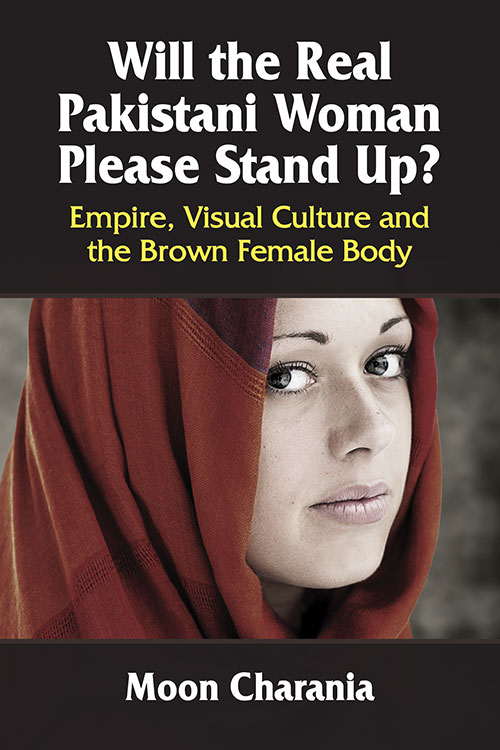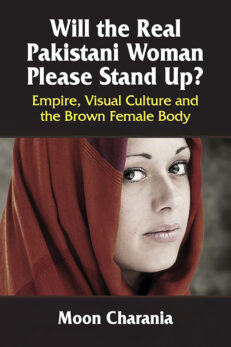Will the Real Pakistani Woman Please Stand Up?
Empire, Visual Culture and the Brown Female Body
$29.95
In stock
About the Book
This series of absorbing case studies focuses on the portrayal of Pakistani women in the global media. Analyzing Hollywood films, British documentaries, newspapers and mainstream U.S. magazines, the book traces sensational female figures of Pakistan—all of whom have been subject to patriarchal violence—highlighting the imagery of exploitation and eroticism. The author addresses questions of spectatorship and fetishism in the age of globalization and the racial and imperial politics of liberal feminism.
About the Author(s)
Bibliographic Details
Moon Charania
Format: softcover (6 x 9)
Pages: 160
Bibliographic Info: 7 photos, notes, bibliography, index
Copyright Date: 2015
pISBN: 978-0-7864-9999-1
eISBN: 978-1-4766-2250-7
Imprint: McFarland
Table of Contents
Table of Contents
Acknowledgments ix
Preface 1
One. Vision as Violence: An Introduction 7
Two. Paranoid Archives: Pakistan in the Field of Visuality, War and Empire 27
Three. Fetish, Fantasy and Freedom: Brown Women’s Bodies as Subject of/to Human Rights 41
Four. Is There a Queer Democracy? Or—Stop Looking Straight: Benazir Bhutto and the Hetero-Erotics of Democracy 71
Five. “Chicks with Sticks”: Pleasure, Subversion and Insubordination in Female Political Subjectivity in Pakistan 108
Coda. Will the Real Pakistani Woman Please Stand Up? Unhappy Archives and the Failure of Visual Culture 121
Chapter Notes 137
Bibliography 141
Index 147
Book Reviews & Awards
“a sensitive treatment with many merits. Charania examines not only what has been said about them but what they say about their own situations, in so doing challenging readers to engage with the women and/or their situations. The book provides a great deal of fodder for those knowledgeable about or interested in visual culture. Recommended”—Choice; “This book is gender studies research at its best! By placing the visual field within a nuanced socio-historical analysis, Charania destabilizes the Western visual construction of the Pakistani woman with an exacting feminist analysis…and renders visible the ways in which the Pakistani woman has been used to legitimize neocolonial and militarist interventions.”—R. Danielle Egan, professor and chair of Gender and Sexuality Studies, St. Lawrence University; “A powerful, layered critique of the geopolitics and racialized erotics of Muslim women’s representations. Feminist and queer in its stance, this book is a singular contribution to scholarship.”—Jyoti Puri, professor of sociology, Simmons College of Arts and Sciences; “This brilliant, careful, detailed analysis of multiple kinds of figures of Pakistani women that currently travel in transnational media, books and film, fruitfully troubles and radically expands our knowledge of the place of gender, sexuality and racialization in the (neo-)colonial production of otherness and its materialized deployment in global politics. Charania’s stunning, intensely insightful book is a must read for scholars of cultural studies, postcolonial and decolonial studies, gender studies, queer studies, transnational sociology, peace and conflict studies, media studies and South Asia Studies.”—Paola Bacchetta, Department of Gender and Women’s Studies, University of California, Berkeley.





